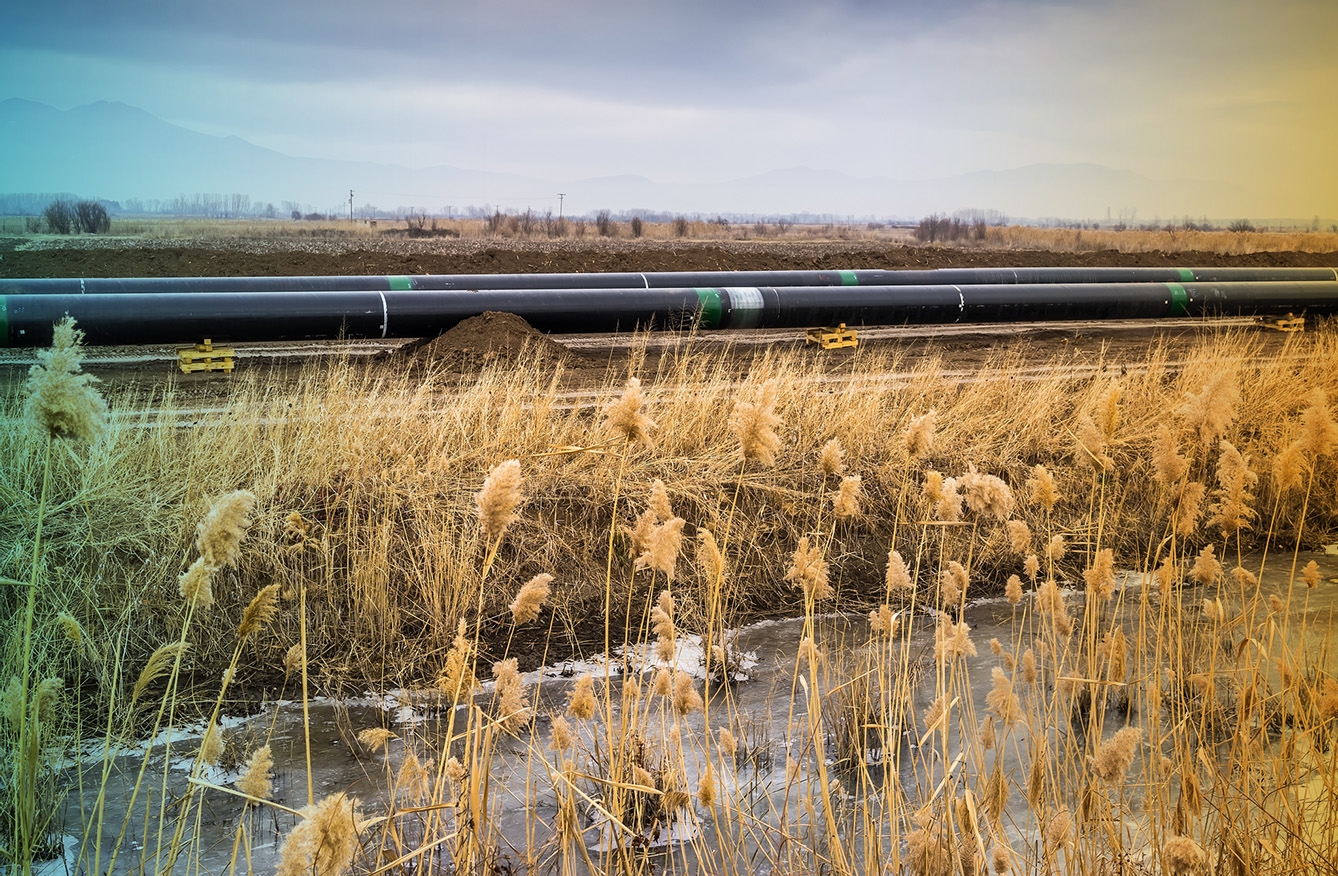One of the regions in Europe most dependent on Russian gas is the Western Balkans. All the countries in the region suffered sudden energy crises both in 2006 and 2009 when gas deliveries fell significantly during the Russian-Ukrainian gas disputes in those years. A new pipeline could help improve the situation, finally giving the region access to Azeri gas.
The Ionian-Adriatic Pipeline (IAP) is a proposed natural gas pipeline in Southeast Europe that is still waiting for the final investment decision. If completed, the 516-kilometer-long pipeline will run from Fier in Albania through Montenegro to Split in Croatia with a spur into Bosnia and Herzegovina (BiH). The pipeline would connect with other pipelines in the region, creating a corridor for Azeri to reach Central Eastern Europe. In Fier, IAP would be connected with the Trans Adriatic Pipeline (TAP), which transports gas from one of the world’s largest gas fields, the Azeri Shah Deniz deposit, through Turkey, Greece, and Albania to Italy.
In Split, the pipeline will connect with the gas transmission system of Croatia and could, in the future, also be connected to the newly-built Croatian Liquefied Natural Gas (LNG) terminal in Krk. Out of the potential five bcm, Albania will use around one billion cubic meters, Montenegro will take half a billion, BiH is prepared to receive one billion, while Croatia would take over 2.5 bcm for its own needs and that of other countries further north in Central Eastern Europe.
The role of Azerbaijan in creating a safer region
Central Eastern Europe (CEE) has until recently been practically wholly dependent on Russian gas. For example, increasing regional production through potential future exploitation of Romanian gas fields in the Black Sea can help alleviate the problem. Another possibility is offered by increasing the number of LNG terminals in the region that make it possible to import gas by ship from large suppliers located far away, such as the USA, Qatar, and Australia. A third important source are new pipelines connecting the region with non-Russian suppliers.
Baltic Pipe will play an important role when it starts bringing Norwegian gas through Denmark to Poland by the second half of 2022, but it will not be able to cover a significant part of the entire region’s gas demand on its own. This is why Azerbaijan has emerged as an increasingly crucial future source for CEE’s energy security. Apart from providing cheap non-Russian gas, the pipelines bringing Azeri gas to Europe are particularly attractive due to Azerbaijan’s enormous gas reserves, making it a long-term solution for Europe. The country has access to gas reserves of 2.6 trillion cubic meters beneath the Caspian Sea.
IAP is scheduled to complete its feasibility studies in late 2022, followed by a final investment decision in 2023. If everything goes according to plan, construction will start in 2025. Soon thereafter, Albania, Montenegro, and the southern parts of Croatia and BiH will finally have access to the European network of natural gas pipelines. It will strengthen the security and diversification of natural gas supply in those countries and CEE.
With the completion of IAP, the region will improve its energy security and strengthen market integration and competition, bringing down the price of natural gas for consumers.







